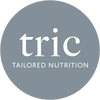Protein Power: Find Your Fuel

After your surgery, protein shakes will be what provides you with nutrition. If one protein shake doesn’t appeal to you, perhaps makes you nauseous, then try another. There are lots of choices and lots of flavours, so there is no reason to suffer! At Tric Nutrition we know everyone has different tastes which is why we have a large range of flavours and products on offer.
Once you can begin adding solid foods back into your diet post-surgery, the main rule? Eat protein first.
Protein recommendations, post-bariatric surgery
Protein intake depends upon the recommendations of your surgeon. General guidelines are as follows:
Post-surgery intake varies from 55 to 100+ grams, depending upon individual needs and medical recommendations
- Women typically need a minimum of 50 to 60 grams
- Men typically need a minimum of 60 to 70 grams
Preferred sources of protein include:
- Poultry
- Eggs
- Lean meat
- Fish
- Low fat cheese
- Skim milk
- Beans and lentils
Why protein?
- Protein is the only nutrient that repairs and builds tissue. You need to heal the wounds of surgery, so going into surgery with adequate protein and continuing the habit after surgery will foster a healthy recovery.
- Protein is essential for your immune system. Your ability to fight of infections is critical after a surgery, as well as during the flu season!
- Protein is what our muscles need to exist! Amino acids are the building blocks for our body mass, not only our muscles, but our liver, brain, skin blood , etc. To avoid having thinning hair during the rapid weight loss phase, be sure to get adequate protein.
- A protein rich diet can lead to improved body composition and increased metabolism. Muscle burns 8 times the calories that fat on your body does. As you lose the fat and retain the muscle, you can ensure long term weight maintenance with your lighter, lower fat body.
- Protein keeps you feeling full, and dampens blood sugar highs and lows. Eat some protein with carbohydrates and fat and you will be satisfied for longer.
- Protein fuels fat burning. As you lose weight, your body loses fat and muscle. To preserve your muscle tissue, consume adequate protein and do strength training exercise. You still need to have carbohydrate and fat in your diet, to spare the protein for its essential body functions. Do not be afraid to eat a balanced diet with healthy starches, fruits and vegetables, and healthy lipids.


